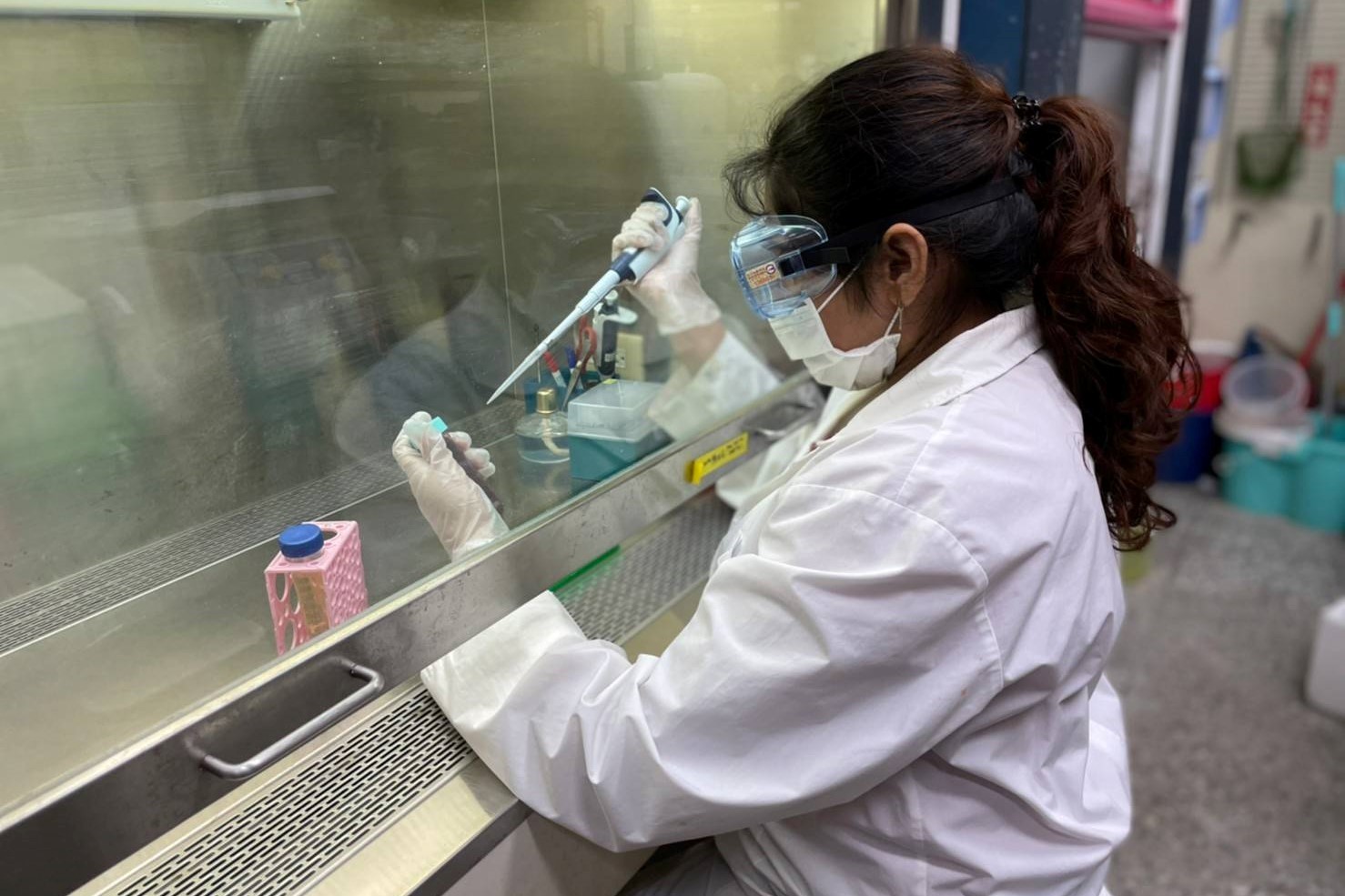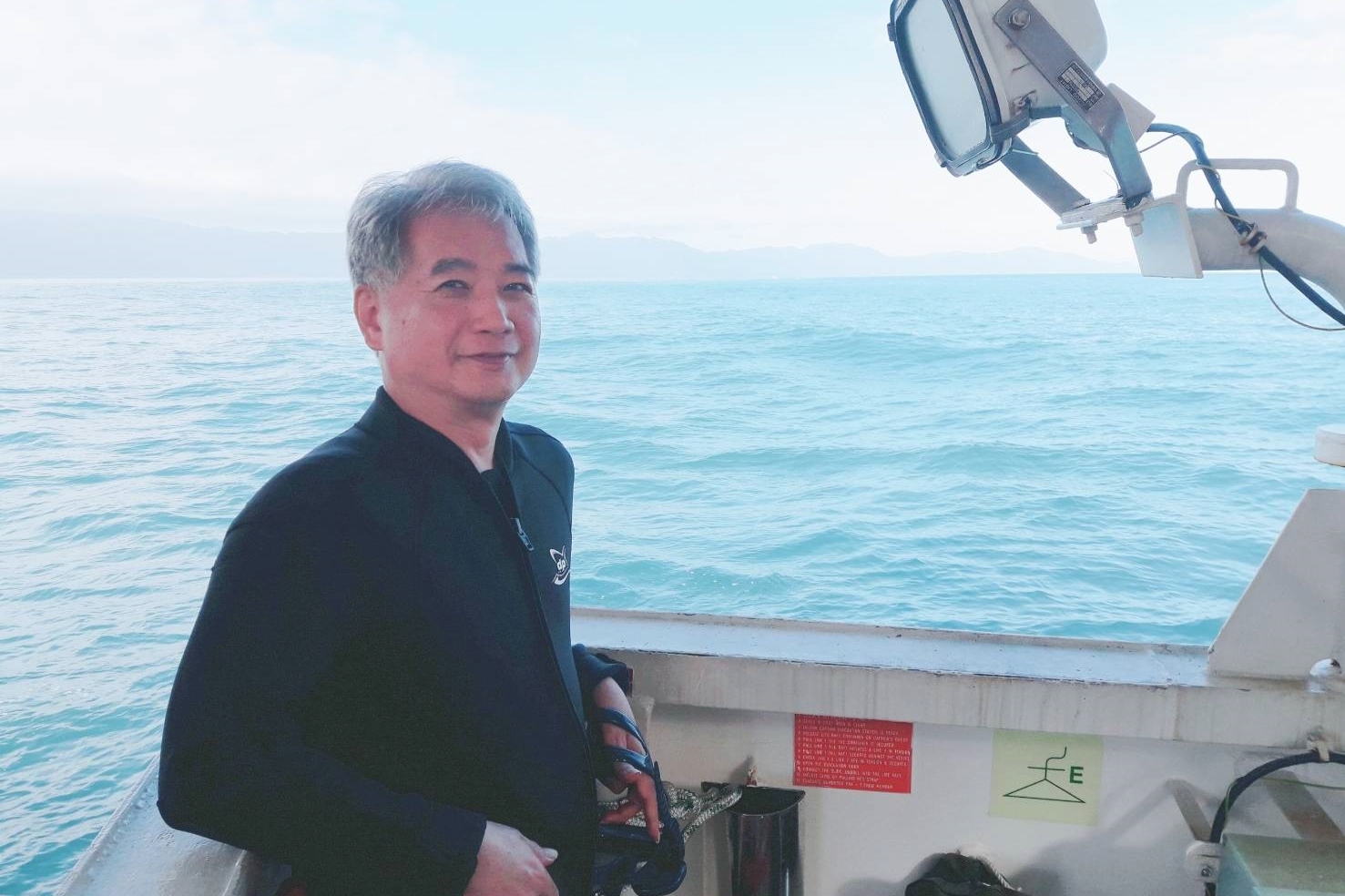NTOU International Doctoral Students' Plastisphere & Secondary Metabolites Research Strive for a Balanced Ecological System

The Institute of Marine Biology (IMB) at the National Taiwan Ocean University (NTOU) continuously focus on developing interdisciplinarity biology research and maintaining a solid base in ecology to support a wide range of applications including industry, fisheries, natural products chemistry, pollution remediation, conservation, and resource management through research, training, and teaching activities. 2 Indian doctoral students, Priyanka Muthu and Jiji Kannan at IMB, NTOU, won 2023 Solid and Hazardous Waste Research Scholarship awarded by the Air & Waste Management Association (A&WMA) to recognize their endeavor in reserving the ecology and biodiversity.
|
Priyanka & one of her co-advisor Assistant Prof. Ying-Ning Ho |
Jiji & her co-advisor Prof. Li-Li Chen |
Priyanka Muthu delves deep into the intricate relationship between marine habitats and the microorganisms that colonize plastic surfaces, known as the plastisphere. She explores the ecological implications of plastic pollution on both macro and micro scales. In 2022, through water sampling at over a dozen locations, Priyanka followed Prof. Jiang-Shiou Hwang (黃將修) and closely monitored the plastic pollution brought over by Kuroshio Current near Fulong and Guishan Island. She examined the current status of the microorganism communities adhering to plastic. Her efforts made up the basis of the biological system and impact of plastisphere in the Northeast and Yilan Coast sea areas.
|
Priyanka's co-advisor Prof. Jiang-Shiou Hwang |
Priyanka & Assistant Prof. Ying-Ning Ho |
Building upon her observations of plastic pollution in marine environments, Priyanka conducted on-site experiments in 2023. She installed fishing nets, plastic bottles, and driftwood, common types of marine debris, and tracked the evolving species adhering to these waste materials on a regular basis. Together with Assistant Prof. Ying-Ning Ho(何攖寧), Priyanka’s co-advisor, they utilized Oxford Nanopore Technologies and created samples of plastisphere in various plastic materials. These results faithfully portrayed the microbial diversity in the Kuroshio Current ecosystem and serve as a crucial reference point for assessing risks associated with pathogens, organic pollutants, and invasive species.

samples of plastisphere
Another 2023 Solid and Hazardous Waste Research Scholarship recipient is Jiji Kannan, an Indian doctoral student at the Institute of Marine Biology, NTOU. Jiji’s research focused on examining the biological activities and metabolic profiles of fungal strains obtained from distinct mangrove locations in Taiwan. Under the supervision of Prof. Li-Li Chen(陳歷歷), she aimed to deepen the understanding of the diverse fungal communities thriving in mangrove environments and uncover any valuable bioactive compounds or metabolic pathways that could have practical applications. Jiji investigated several marine fungi species in mangrove ecosystems, as her co-advisor, Prof. Ka-Lai Pang(彭家禮) recommended. The chemical compositions of these fungal strains against aquaculture pathogens may probably replace the high demand for antimicrobials and other chemical agents in the thriving aquaculture industry in India.

Jiji investigated several marine fungi
In the research, the secondary metabolites produced by marine fungi exhibit excellent antioxidant capabilities. Jiji has further analyzed components that possess anti-inflammatory and antimicrobial properties, hoping to apply them in shrimp farming technology. “The marine fungi in Jiji’s research can be considered the ganoderma of mangroves,” Jiji’s co-advisor, Prof. Li-Li Chen shared. “If large-scale cultivation of marine fungi can be achieved at a low cost, their components could be used as additives in fish and shrimp feed, providing significant utilization value. The environmentally friendly characteristics of marine fungi can reduce the impact of antimicrobials and other harmful drugs on shrimps, contributing to biodiversity conservation. Additionally, suppose the active ingredients of secondary metabolites can be further purified. In that case, the secondary metabolites may find applications in various fields, including developing health supplements to enhance human immune systems.

Jiji delves deep into secondary metabolites
The Air & Waste Management Association (A&WMA) is a non-profit organization founded in 1907 that promotes global environmental responsibility. A&WMA assists members and organizations in professional development and makes crucial environmental decisions that benefit society. Every year, A&WMA recognizes experts and teams that excel in promoting sustainable environments through its honors and rewards program. As recipients of A&WMA Solid and Hazardous Waste Research Scholarship, Priyanka and Jiji truly appreciate their mentors’ guidance, expertise, and unwavering belief in their potential. Professors’ dedication enriched Priyanka’s and Jiji’s knowledge, inspiring them to push boundaries and strive for excellence.






